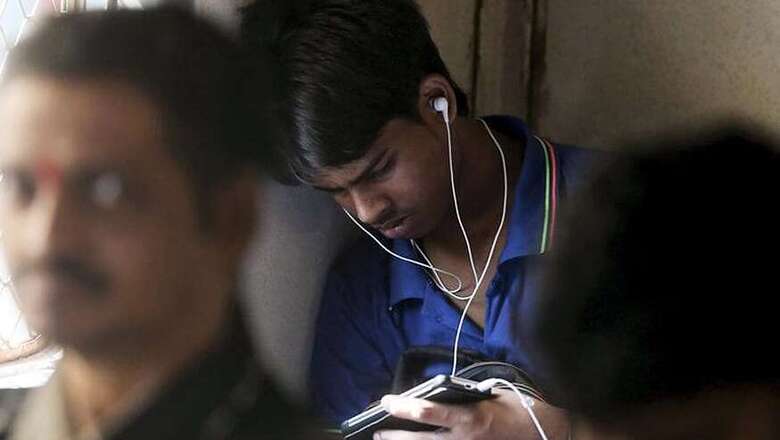
views
New research backed by Mozilla reveals that internet users in India are quite discerning. The study carried out by LIRNEasia, an Asia Pacific-based information and communication technology firm indicates that Indian Internet users don’t always choose online services purely on the basis of the freebies offered. Consequently, according to the report Cost-strained optimization: User perspectives on internet use in India, merely the prospect of earning rewards does not appear to be attracting users in India towards certain applications or content. Moreover, when users don’t know the data allowance required to download such apps, they hypothesize as to whether the potential reward would exceed the cost.
In addition, technology savvy users are downloading the promoted apps and referring friends purely to earn monetary rewards, which they convert to talk time or data or e-commerce transactions. However, limitations may arise as users have to refer friends in order to earn rewards and most ‘pyramid-like’ reference systems have a limited shelf-life before eventually collapsing. “We worried that rewarding people for the use of apps would have a ‘tunneling effect’, where users don’t explore the wider internet,” said Helani Galpaya, CEO of LIRNEasia. “But such fears are premature in India, where we see diverse content being accessed even by users of these apps.”
“While TRAI (Telecom Regulatory Authority of India) has ruled that zero rating is too harmful to consumers and competition to be allowed, there’s still a need to find alternative ways of connecting the unconnected. From this research, it doesn’t look like earned reward applications will be the answer,” said Jochai Ben-Avie, Senior Global Policy Manager, Mozilla. “We believe users want and deserve equal rating solutions, which are free of discrimination, gatekeepers, and pay-to-play schemes.”
Respondents not using the internet cited unaffordability and the lack of digital skills amongst the reasons for not being online. Reliance Jio, which offered free 4G data during the period of fieldwork, served as a counterpoint to zero-rated offers, which subsidized specific content. Many of those who owned a Jio SIM were already online, and used it as a secondary SIM to enhance their user experience. Some were not able to capitalize on the availability of free data via Jio, due to difficulties in affording a 4G-compatible device.
This highlights the sequential nature of the challenge of affordability, whereby the problem of cost of data becomes relevant only once an individual is able to purchase a device. Provision of free data alone, thus, may not be the magic bullet. Increased efforts to make devices affordable and impart digital skills may be needed to enhance internet use. The research also reflected other studies that show a global shift away from Facebook-use among younger users.
Earned reward apps require consumers to download applications or engage in an activity to gain rewards. They gained prominence after the Indian telecom regulator TRAI prevented service providers from “offering or charging discriminatory tariffs for data services on the basis of content.”
The Mozilla supported study was primarily conducted to understand how Indians use the internet when data is subsidized and when it is not.
(Disclaimer: News18.com is part of Network18 Media & Investment Limited which is owned by Reliance Industries Limited)



















Comments
0 comment